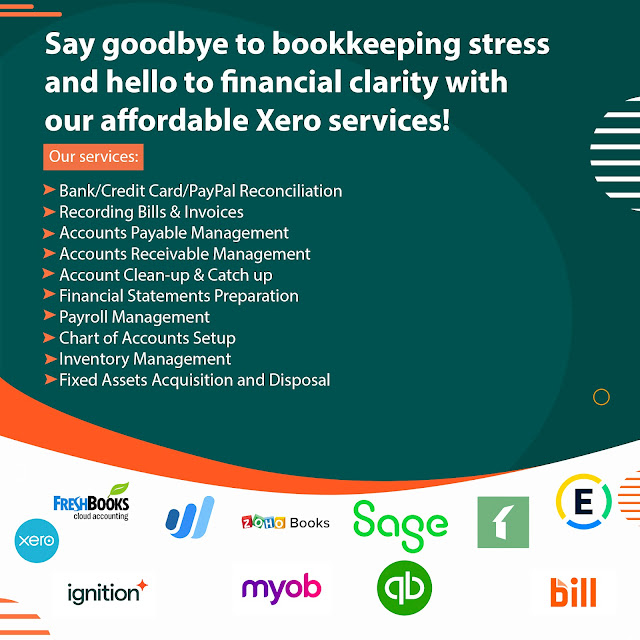Mastering Bookkeeping: Your Guide to Success on Upwork
Introduction to Upwork
What is Upwork?
Upwork is one of the leading platforms for freelancers to connect with clients worldwide. It offers a vast array of job opportunities across various industries, allowing freelancers to showcase their skills and land projects remotely.
Why bookkeeping is important on Upwork?
Bookkeeping is crucial for freelancers on Upwork to manage their finances efficiently. It helps in tracking income, monitoring expenses, and ensuring compliance with tax regulations.
Understanding Bookkeeping
Definition of bookkeeping
Bookkeeping involves the systematic recording and organizing of financial transactions within a business. For Upwork freelancers, this includes documenting earnings, expenses, and other monetary activities related to their freelance work.
Importance of bookkeeping for freelancers
Effective bookkeeping provides freelancers with insights into their financial health, enabling them to make informed decisions about their business. It also simplifies tax preparation and ensures transparency in financial dealings.
Common bookkeeping tasks for Upwork freelancers
Typical bookkeeping tasks for Upwork freelancers include recording project payments, tracking business expenses, issuing invoices, and reconciling accounts.
Setting Up Your Bookkeeping System
Choosing the right accounting software
Selecting the appropriate accounting software is crucial for streamlining bookkeeping processes. Popular options for Upwork freelancers include QuickBooks, FreshBooks, and Wave.
Organizing your financial documents
Maintaining an organized system for storing financial documents is essential. Utilize digital folders or cloud storage to categorize invoices, receipts, and bank statements for easy access.
Creating a schedule for bookkeeping tasks
Establishing a regular schedule for bookkeeping helps freelancers stay on top of their financial responsibilities. Allocate specific time slots each week for tasks such as recording transactions and updating financial records.
Tracking Income and Expenses
Recording earnings from Upwork projects
Keep detailed records of income earned from Upwork projects, including project names, client names, and payment dates. This information facilitates accurate reporting and analysis of earnings.
Logging business expenses
Track all business-related expenses incurred while working on Upwork, such as software subscriptions, equipment purchases, and marketing costs. Maintaining thorough records ensures deductible expenses are not overlooked.
Keeping track of payments and invoices
Monitor payment statuses for invoices sent to clients through Upwork's platform. Follow up on outstanding payments promptly to avoid cash flow disruptions and maintain positive client relationships.
Managing Invoices and Payments
Creating professional invoices
Design professional-looking invoices that include essential details such as client information, project descriptions, rates, and payment terms. Customizing invoices enhances professionalism and encourages timely payments.
Sending invoices to clients
Submit invoices promptly upon project completion or as per agreed-upon milestones. Include clear instructions for payment methods and deadlines to facilitate prompt settlements.
Following up on overdue payments
Implement a systematic approach for chasing overdue payments, starting with friendly reminders and escalating to formal notices if necessary. Persistent follow-up increases the likelihood of receiving overdue funds.
Tax Preparation for Upwork Freelancers
Understanding tax obligations
Freelancers on Upwork are responsible for fulfilling their tax obligations, including income tax and self-employment tax. Familiarize yourself with relevant tax laws and regulations to avoid penalties and compliance issues.
Deductible expenses for freelancers
Take advantage of tax deductions available to Upwork freelancers, such as home office expenses, professional development courses, and business-related travel costs. Maximizing deductions reduces taxable income and lowers tax liability.
Tips for tax planning and filing
Plan ahead for tax season by setting aside a portion of earnings for tax payments throughout the year. Consider consulting with a tax professional to optimize tax-saving strategies and ensure accurate filing.
Maintaining Financial Records
Staying organized with receipts and records
Retain receipts and documentation for all business transactions to support financial records and tax claims. Implement a filing system to categorize and store documents systematically for easy retrieval.
Backing up financial data securely
Protect financial data by regularly backing up electronic records to secure cloud storage or external hard drives. Implement robust security measures to safeguard sensitive information from unauthorized access or data loss.
Reviewing and reconciling accounts regularly
Conduct periodic reviews of financial accounts to identify discrepancies or irregularities. Reconcile bank statements, invoices, and payment records to ensure accuracy and integrity in financial reporting.
Improving Financial Literacy
Educating yourself on finance basics
Invest time in learning fundamental financial concepts relevant to freelancing, such as budgeting, cash flow management, and investment principles. Expand your knowledge through online courses, books, or workshops.
Seeking professional advice when needed
Don't hesitate to seek guidance from financial advisors or accountants for complex financial matters or strategic planning. Professional expertise can help optimize financial decisions and mitigate risks.
Continuous learning and staying updated
Stay abreast of industry trends, regulatory changes, and technological advancements that may impact your freelance business. Embrace lifelong learning to adapt to evolving financial landscapes and maintain a competitive edge.
Conclusion
Mastering bookkeeping is essential for freelancers seeking success on Upwork. By implementing effective bookkeeping practices, freelancers can better manage their finances, streamline operations, and achieve their business goals.



Comments
Post a Comment